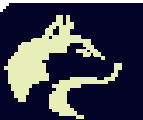Team:Washington/Accomplishments
From 2010.igem.org
University of Washington 2010 iGEM Team Accomplishments
Demonstrate that at least one new BioBrick Part or Device of your own design and construction works as expected; characterize the operation of your new part/device
- We synthesized the CapD protein coding sequence optimized for E. Coil expression and in accordance to biobrick standards, <partinfo>BBa_K314011</partinfo>, and determined its catalytic constants, as shown here: Find it on our wiki
- We biobricked the Tse2/Tsi2 <partinfo>BBa_K314203</partinfo>, toxin-antitoxin locus with F2620, an HSL inducible promoter, and showed expression of the toxin in response to HSL. [Find it on our wiki]
Characterize the operation of at least one new BioBrick Part or Device and document it in the registry
- We re-engineered capD into capD_CP by circularly permuting it. CapD_CP can be found in the parts registry under <partinfo>BBa_K314012</partinfo>. As a result of this reengineering, capD_CP no longer needs to autoclave itself to become active, resulting in substantially higher yields of active protein after purification. We expressed and characterized the enzyme as can be found here: Find it on our wiki
- We introduced and characterized a commonly used f1 phage replication origin, <partinfo>BBa_K314011</partinfo>. By incorporating this into current BioBrick plasmids the plasmids can be replicated as double stranded DNA by bacteria or as single stranded DNA by M13 helper phage. The part was characterized as shown here: Find it on our wiki
Characterize or improve an existing BioBrick Part or Device and enter this information back on the Registry
- We made a set of protein expression cassette's, allow future teams to make generators in a single round of cloning. To do this we used some new parts (f1 ori, lacR, T7 Promoter) as well as several existing parts (BBa_B0034, High Const# J23100, Low Const# J23114, R0011). We then characterized each cassette's ability to express GFP (##). The results of each expression cassette in pSB1C3 are listed here. Further information and characterization of the cassette's in different base plasmids (1A3, 3K3, 4A5) can be found in our wiki here: [Find it on our wiki]
- <partinfo>BBa_K314100</partinfo>High Const
- <partinfo>BBa_K314101</partinfo>Med Const
- <partinfo>BBa_K314103</partinfo>Lac Induc
- <partinfo>BBa_K314104</partinfo>T7 Induc
Develop and document a new technical standard that supports the sharing BioBrick Parts or Devices, either via physical DNA or as information via the internet
- We developed a new software tool that allows users to make interactive images that link to the desired part?
- We developed a new software tool that allows users to submit many BioBricks with the single click?
Gained real-world synthetic biology experience
- Our team was comprised of senior high school students who had never pipetted before to graduating seniors with several years of lab experience. By the end of the summer we had learned many skills in synthetic biology, from cloning gene's, to developing enzyme assays, to writing code!
University of Washington 2010 iGEM Parts Submitted
Gram(-) Parts Submitted
<partinfo>K314200 DeepComponents</partinfo><partinfo>K314201 DeepComponents</partinfo><partinfo>K314202 DeepComponents</partinfo><partinfo>K314203 DeepComponents</partinfo>
Gram(+) Parts Submitted
<partinfo>K314011 DeepComponents</partinfo> <partinfo>K314012 DeepComponents</partinfo> <partinfo>K314015 DeepComponents</partinfo> <partinfo>K314017 DeepComponents</partinfo> <partinfo>K314025 DeepComponents</partinfo> <partinfo>K314100 DeepComponents</partinfo> <partinfo>K314101 DeepComponents</partinfo> <partinfo>K314103 DeepComponents</partinfo> <partinfo>K314104 DeepComponents</partinfo>
 "
"
